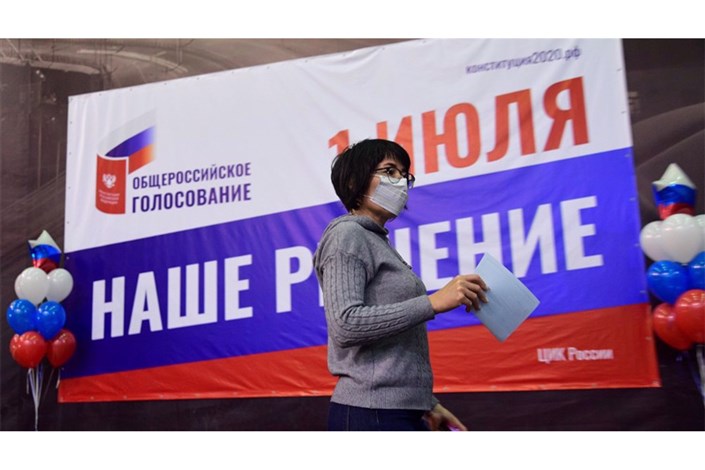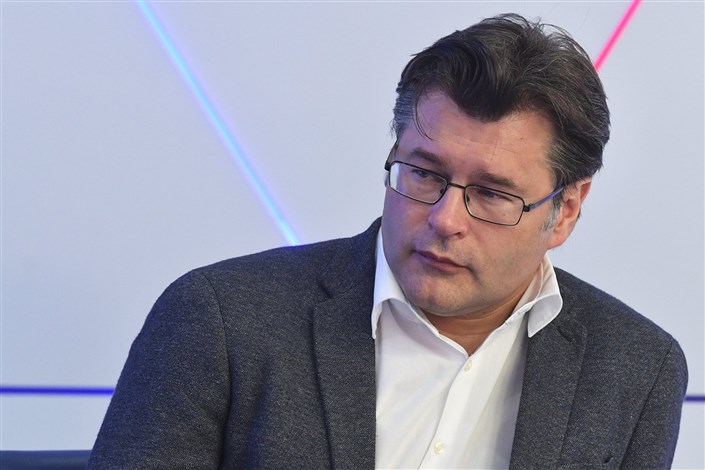BY: Yasser Nazifi Gilavan and Damir Nazarov

PEJOURNAL – The recently approved changes in the Russian Constitution will not be implemented easily, as those whose influences are threatened will show resistance, a renowned political scientist told ISCA News.
Russian constitutional reforms – in total, over 200 changes – including an amendment that allows President Vladimir Putin to potentially remain in power until 2036, won almost 78 percent of the votes in a week-long referendum from June 25 to July 01.
To touch upon the recent developments in the largest country of the world, The ISCA News had an interview with Director General of the Russian Centre for Political Information Alexei Mukhin.
Here comes the full text of the interview:
Q: What is the prospect of Russia with the new Constitution? Will the changes lead to an age of prosperity and progress for Russia?
A: Implementation of the new provisions of the Constitution of the Russian Federation will take some time-about 3-6 months. The political and social system will be corrected, but, relatively speaking, “tomorrow people will not wake up happy”: painstaking work will face resistance from a number of officials who are not interested in weakening their influence on the economic and political processes in the country. There will be a hidden, but very serious struggle in the near future, where it may well manifest a lot of contradictions and conflicts that currently exist in the Russian establishment in a hidden form.
Q: Some argue that Putin is trying to cling to power, or give himself an option to stay on if he cannot find a suitable successor. To what extent do you agree with this argument?
A: Vladimir Putin was faced with the problem of choosing a successor back in 2006, and even then it became clear what threats the period before the radical change of the bearer of the Supreme power carries. The lesson was learned and the current President, who has 4 more years in power, decided to show a rather risky initiative from the point of view of the public image, but justified — in a short game until 2024.
Putin put his opponents in front of the “terrible” prospect of actually prolonging his presidential status for another 12 years. In fact, it seems to them that he has destroyed their dreams of his imminent departure. There is nothing more aggressive (and unhappy) than people who have their dreams destroyed. In this state, they are not able to adequately assess reality and have started making obvious mistakes, which Putin is going to use in the near future. The question of Putin’s notorious “successor” has been postponed for some time, as far as I know.
Q: Was the voting process held in a fair ground?
A: The voting process was organized as “cleanly” as possible in the face of a pandemic threat. That is why the opponents limited themselves to abstract accusations and could not bring any serious (apart from one-time cases, which, as exceptions, only confirmed the rule) argument against the recorded result.
Q: Is Russia getting closer to or distancing from democracy under Putin?
A: It is paradoxical, but the fact that, for all the “authoritarianism” that is attributed to Putin personally (some features of this are certainly present in his character), the mechanism of governing the country that developed under him is much more consistent with democratic canons than under Boris Yeltsin. The latter could shoot at the Supreme Soviet from tanks (1993), and could start an armed conflict in Chechnya — from the motives of adventurism “on the advice” of his equally adventurous defense Minister.
Today’s Russia is governed collectively, not authoritatively, while the role of representative bodies has been growing since 2012, including in formal areas. The process started with Putin’s introduction of the mandatory annual report of the Prime Minister of the Russian Federation to the Federal Assembly and reports of individual Ministers (on a regular basis).
In accordance with the current amendments, the movement towards “vechevoy democracy”*, characteristic of the historical traditions of Russia-Rus, generally become a political reality: the role of the state is clarified as the Duma and the Federation Council are given a say in the process of forming the Cabinet of Ministers. Accordingly, the functionality of the President of the Russian Federation is being clarified. So from an institutional point of view, changes in the Constitution do lead to what is called “democracy” in Western countries.
The only question remains: What exactly will happen in the Russian reality, when the amendments are implemented? And will the new political system work?
* – veche – In Ancient Russia: a meeting of citizens to solve public Affairs, as well as the place of this meeting.
Alexey Mukhin,member of a board of trustees of Russian State University for humanities.

* Alexey Mukhin, 49 years old, is a member of a board of trustees of Russian State University for humanities. He is an author of over 100 scientific papers, including monographs in the field of political science and history of Russia. Mukhin issued an Internet- magazine FEC (Facts, Events, Comments) as the editor-in-chief (2002). Spheres of his professional interests include: political analysis (analysis of political processes); formation, behavior, and psychology of elites; the military reform and the reform of the Russian intelligence services; state agencies and the administrative reform in the Russian Federation; national security; economic risks; organized crime.
Mukhin’s comments on current political and economic developments are regularly cited by the leading national and international media, such as Spiegel, The New York Times, Le Figaro, France 24, Deutsche Welle, Kommersant, Vedomosti, RBC-daily, Nezavisimaya Gazeta, Expert, Profile, Izvestia, Channel One, Russia today, Channel 5, Business FM, Finam FM, Kommersant FM, Echo of Moscow etc.